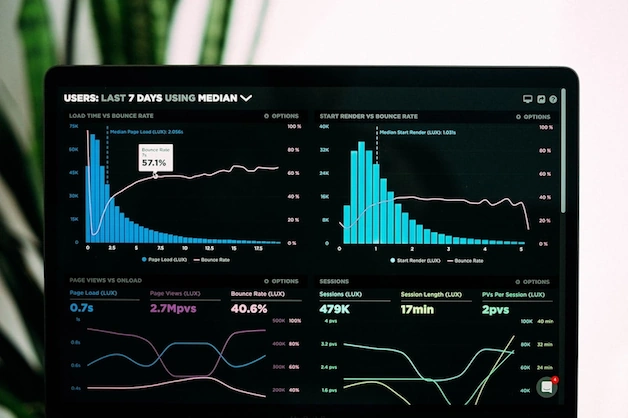Australian small and medium businesses spend between $1,000 – $10,000 /month on Search Engine Optimisation (SEO). Many of them see improvement in rankings and website traffic over a 6-12 month period. While that sounds excellent, is this a meaningful result for the business?
What do SEO agencies do?
SEO agencies seek to improve your website’s ranking. They do this using a variety of strategies including:
- technical improvements to your website
- directory listing
- backlinking
Over time, as Google crawls your the directories and the 3rd party websites and notices more links to your site. These “appearances” slowly convince Google of your site’s relevance. As such, your listing on Google moves up the ranking.
This is a simplification but captures the gist of core SEO services.
What’s good about SEO?
To a degree, SEO does work as advertised.
Over time, your website rankings are likely to improve. Higher rankings on search results pages will naturally translate to an increase in website traffic. At regular intervals, your SEO agency will present analytics celebrating exactly this.
What could be wrong with a 10-fold increase in traffic?
What’s not great about SEO?
The car may be shiny on the outside, but looking under the hood can leave you shocked.
Misrepresentation
Backlinks come in many shapes and forms. While the link may lead to your site, the wrapping text or article may totally misrepresent your business. Even when the facts are correct, the brand messages can be completely off and damaging.
This happens because the cheaper SEO agencies often outsource work to cheap international freelancers. It is also why in monthly reports many SEO agencies do not show you the actual backlinks.
However, this strategy still works because Google is not yet discerning enough. While the backlinks are totally irrelevant to actual audiences, to Google’s bots they “look” okay. For now.
The Risk of Penalties
Google treats backlinks fundamentally as referrals. But if Site A pays to be listed on Site B, then the credibility of both Site B (as a referrer) and Site A are in question.
As such, Google tells webmasters that it will penalise any sites that are found to be paying for backlinks and vice versa. But Google takes a while to identify these “toxic” sites. So it is commonplace for most SEO Agencies to ignore this rule and exploit the gap.
Over time, a referring website may be discovered as “toxic” and everyone gets penalised (a dramatic drop in rankings). This strategy keeps SEO Agencies continually in business as they add, disavow and remove backlinks in perpetuity.
Businesses paying for this type of SEO services are essentially keeping the hamster on the wheel.
SEO ROI
SEO will increase your site’s total number of visitors. But this often includes mostly irrelevant visitors who will either bounce or will not go on to become a lead, let alone a customer. So while topline growth may look amazing, it often does not translate to the bottom line.

Digital analytics dashboard in black displayed on a laptop screen.
What do Content Marketing agencies do?
Content Marketing agencies seek to create content that addresses the needs and motivations of the business’ actual leads and customers. They do this using a variety of content types including:
- articles
- videos
- social posts
- email newsletters
What’s good about Content Marketing?
Content Marketing aims to be directly relevant to the lead / customer that lands on the website (or other channels). The goal of good content is to nurture the audience, build trust and present an ever more complete picture of an evolving brand.
Articles that address common questions helps customers understand a product or service better. It offers them clarity and reduces costly contact hours that a business has with its customers.
Videos are easier to consume and give the brand a more approachable, human touch. For smaller and more intimate businesses, it helps audiences get to know the owner well before even meeting them.
A brand that tells success stories of its past customers helps its audience see themselves and the potential collaboration ahead.
A regularly updated website indicates to Google’s bots that the business is serious about regularly engaging its customers via that channel. Over time, the site’s rankings will improve.
What’s not great about Content Marketing?
There are no quick fixes with Content Marketing. It requires a business with a long term vision.
Painstaking
Because articles / videos will appear in the voice and style of the brand, quality control is critical. Small businesses often do not have the capacity, expertise or creative energy to write and publish regular articles or videos. Collaborating with a copywriter can be frustrating as it takes time to create alignment on the “voice” of the brand.
Limited Reach
In the early stages of Content Marketing, companies are often addressing a small cross-section of the total addressable market. It takes work to repurpose, repackage and cross-post content on social media and via email marketing newsletters.
Unlike the immediacy that comes from SEO’s traffic uptick, because the content marketing target audience is often existing contacts, the “high” that comes from feedback-loop approval is few and far between.
Content Marketing ROI
While topline web traffic growth is slower than SEO, content marketing primarily seeks to improve conversion rates. Armed with the right downloadables, articles and videos, sales cycles can be sped up.
Also, Content Marketing keeps the brand front of mind with its leads and customers, leading to more referrals. Combined with a getting noticed by Google’s bots, it will also lead to an opening up of the marketing funnel, albeit slowly at first.

When to use SEO vs Content Marketing?
SEO and Content Marketing are tactics that address distinct stages of the buyer journey.
SEO seeks to open up the marketing funnel at the awareness stage. This tactic is great for B2C companies with fast-moving products and early stage businesses that need to establish their brand. SEO is never going to result in better conversion rates.
Content Marketing works best for companies that seek to catalyse referrals, nurture leads and close more sales. This tactic is ideal for B2B companies and services-based businesses. Content Marketing is only going to result in better ranking in the long run.
Conclusion
In our view, too many businesses are SEO heavy and may not be reaping the best benefits.
However, both SEO and Content Marketing are important and necessary digital marketing tactics for every business.
We recommend adopting an integrated approach based on actual business priorities in order to unlock the best results.
Catalyst Content offers both SEO and Content Marketing services. Contact us to find out more.



